One of the best and strangest things that we as humans ask ourselves, is what would long dead historical figures do in our shoes. This ranges from the personal, wherein people ask themselves what Jesus, Ghandi, Buddha, or whoever else, would do, to the political, where we (in America at least) ask what the founding fathers would do, to the philosophical where we ask ourselves what our favorite thinkers or writers would say about our specific social and political situations. Now this is a process that I find equal parts amazing and comical; amazing in that we have the capacity to extrapolate what a long dead (or not) figure would say, think or do in a given situation, and comical in that we all seem to come up with very different answers to the “what would they?” questions, usually based upon our own opinions. To me this seems like us justifying our own leanings with some nonsense we make up and attribute to a famous dead person, but I nevertheless do it anyway, and I’m going to do it again now. 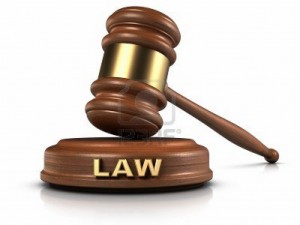 The question I find myself asking lately is: what would Dostoyevsky think of our American supreme court’s recent landmark decision?
The question I find myself asking lately is: what would Dostoyevsky think of our American supreme court’s recent landmark decision?
Now my first impression would be that since he was intimately familiar with political corruption, the price of politicians, and the (sometimes willing) blindness of the masses, Dostoyevsky would generally approve of at least the basic concept behind America’s highest court. On a side note, I think that even though America was a bit of an up and coming country and not a highly visual world power in Dostoyevsky’s time,  he probably knew America’s history as well as anyone, and would probably have approved of the underlying philosophical ideal that the supreme court sprang from. The idea of a judge being appointed instead of elected is quite philosophically pure, even of the physical reality is a group of judges with only one member whose opinion is not known in advance. But at least there is such a member! That in and of itself is a bit of a marvel considering that the judges are appointed by career politicians and confirmed by a group of the same. I doubt Dostoyevsky would be terribly surprised by the actual process of appointment, but I do wonder what Dostoyevsky would make of the current judges: affirming marriage rights for all citizens on one side and declaring business entities to be people on the other.
he probably knew America’s history as well as anyone, and would probably have approved of the underlying philosophical ideal that the supreme court sprang from. The idea of a judge being appointed instead of elected is quite philosophically pure, even of the physical reality is a group of judges with only one member whose opinion is not known in advance. But at least there is such a member! That in and of itself is a bit of a marvel considering that the judges are appointed by career politicians and confirmed by a group of the same. I doubt Dostoyevsky would be terribly surprised by the actual process of appointment, but I do wonder what Dostoyevsky would make of the current judges: affirming marriage rights for all citizens on one side and declaring business entities to be people on the other.
Of course the Russian courts Dostoyevsky was familiar with were a bit different from American courts, and the political system was vastly different in its form, though closer than we would probably like in corruption; and so I wonder what Dostoyevsky would think of our courts, that affirm individual freedom while allowing political power to be sold to the highest bidder.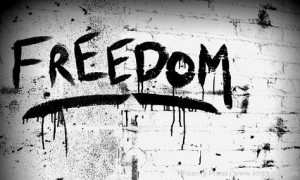
I think he would grudgingly approve of the affirmation of individual rights providing they didn’t burden society; indeed, he seems to prize personal responsibility at least in his writings, if not individual freedom in all facets of life. In fact as much as I would love to think that Dostoyevsky would be completely fine and even happy with America’s focus on individual liberties, I think that he might actually be a bit concerned by our level of personal freedom; after all, his novels, like Crime and Punishment and Notes from the Underground, are all about our duties to society being more important than our personal liberties (or liberty).
Oddly enough, Raskolnikov at the beginning of Crime and Punishment always reminds me of the Underground Man from Dostoyevsky’s Notes from the Underground, or rather, of what the Underground Man must have started out as…
In movies like the upcoming Dostoyevsky Reimagined: The Making of Notes from the New World dealing with real life criminal underworld of the contemporary America one can almost imagine Dostoevsky concealed in the shadows …
Be sure to visit us at home at Dostoyevsky Reimagined: The Making of Notes from the New World and on our social media pages: Twitter, Facebook, Google+, Pinterest, Tumblr, and Instagram.

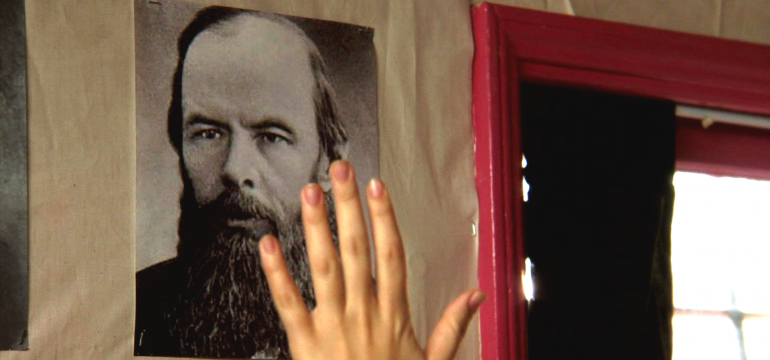
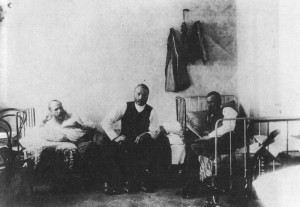
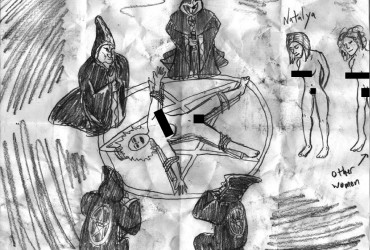
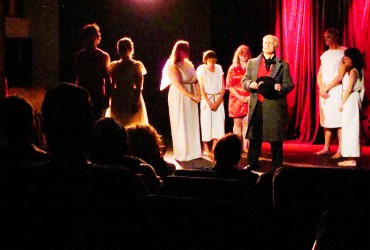



Leave a Reply